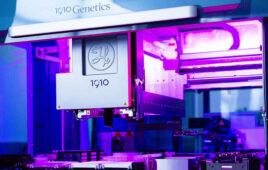Before gene therapy becomes practical for treating human diseases, researchers must master the details of safe and effective delivery. Cardiology researchers at The Children’s Hospital of Philadelphia have advanced delivery techniques by creating a versatile synthetic material that can bind to a variety of gene therapy vectors and can be custom-designed for controlled local release of therapeutic genes at a disease site.
In an animal study, the research team used their new synthetic formulation to bind adenoviruses to bare metal stents, tiny metal scaffolds inside the carotid arteries of rats. Adenovirus served as a gene therapy vector to carry genes for an enzyme that significantly reduced restenosis, the hazardous narrowing of a blood vessel that often occurs despite the presence of a stent designed to hold it open.
Although the materials are in an early stage, the hope is that this method may help to treat artery disease in people. “We developed a synthetic gene delivery system that can be used for any gene therapy vector, not just adenoviruses,” said study leader Robert J. Levy, MD, the William J. Rashkind Chair of Pediatric Cardiology at The Children’s Hospital of Philadelphia. “Furthermore, this new formulation allows us to increase the dosage of gene therapy vectors delivered, and we can tune the materials for sustained release over a longer time period.”
Levy’s group reported its study this week in the online version of the journal Circulation, published by the American Heart Association.
Release date: April 15, 2008
Source: The Children’s Hospital of Philadelphia
Filed Under: Genomics/Proteomics




